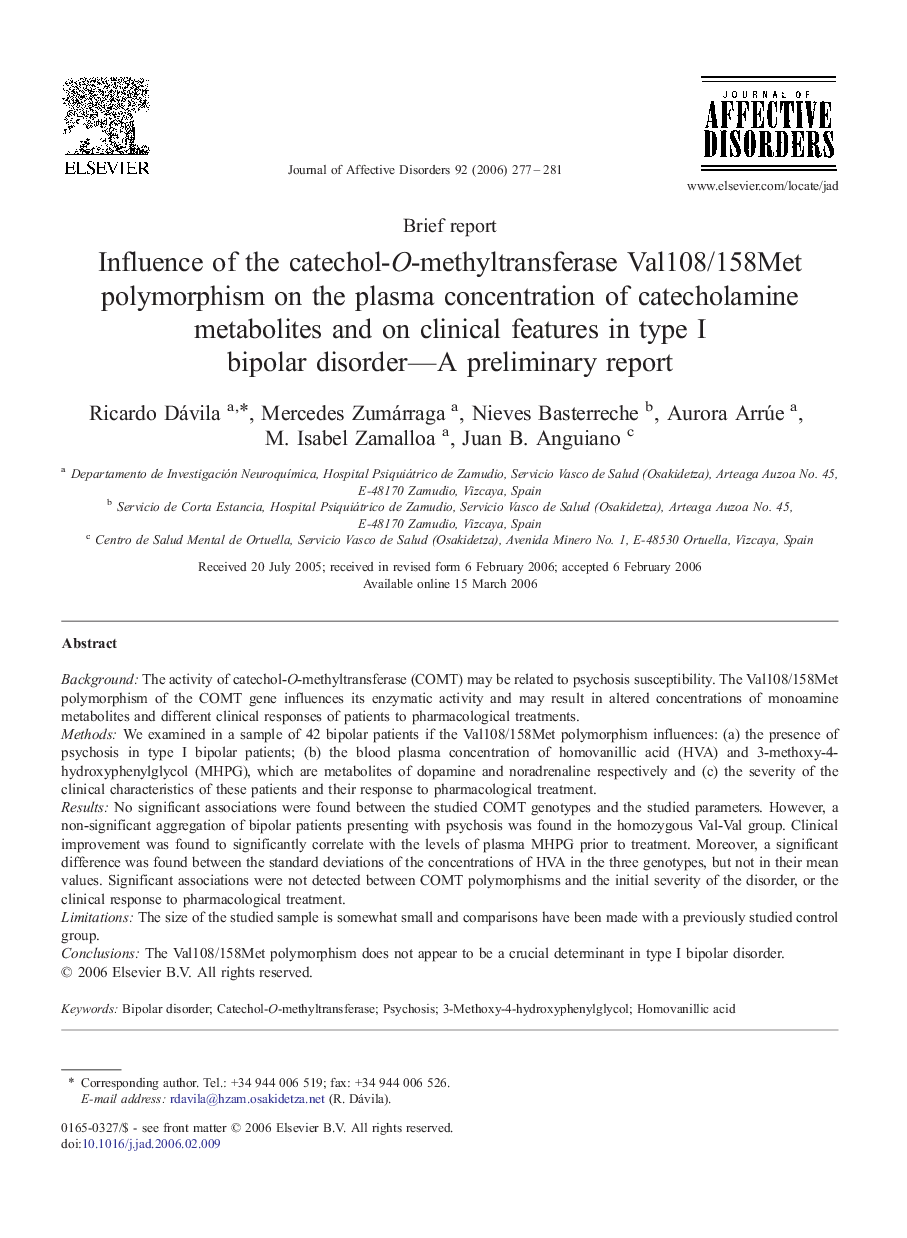| Article ID | Journal | Published Year | Pages | File Type |
|---|---|---|---|---|
| 4188094 | Journal of Affective Disorders | 2006 | 5 Pages |
BackgroundThe activity of catechol-O-methyltransferase (COMT) may be related to psychosis susceptibility. The Val108/158Met polymorphism of the COMT gene influences its enzymatic activity and may result in altered concentrations of monoamine metabolites and different clinical responses of patients to pharmacological treatments.MethodsWe examined in a sample of 42 bipolar patients if the Val108/158Met polymorphism influences: (a) the presence of psychosis in type I bipolar patients; (b) the blood plasma concentration of homovanillic acid (HVA) and 3-methoxy-4-hydroxyphenylglycol (MHPG), which are metabolites of dopamine and noradrenaline respectively and (c) the severity of the clinical characteristics of these patients and their response to pharmacological treatment.ResultsNo significant associations were found between the studied COMT genotypes and the studied parameters. However, a non-significant aggregation of bipolar patients presenting with psychosis was found in the homozygous Val-Val group. Clinical improvement was found to significantly correlate with the levels of plasma MHPG prior to treatment. Moreover, a significant difference was found between the standard deviations of the concentrations of HVA in the three genotypes, but not in their mean values. Significant associations were not detected between COMT polymorphisms and the initial severity of the disorder, or the clinical response to pharmacological treatment.LimitationsThe size of the studied sample is somewhat small and comparisons have been made with a previously studied control group.ConclusionsThe Val108/158Met polymorphism does not appear to be a crucial determinant in type I bipolar disorder.
